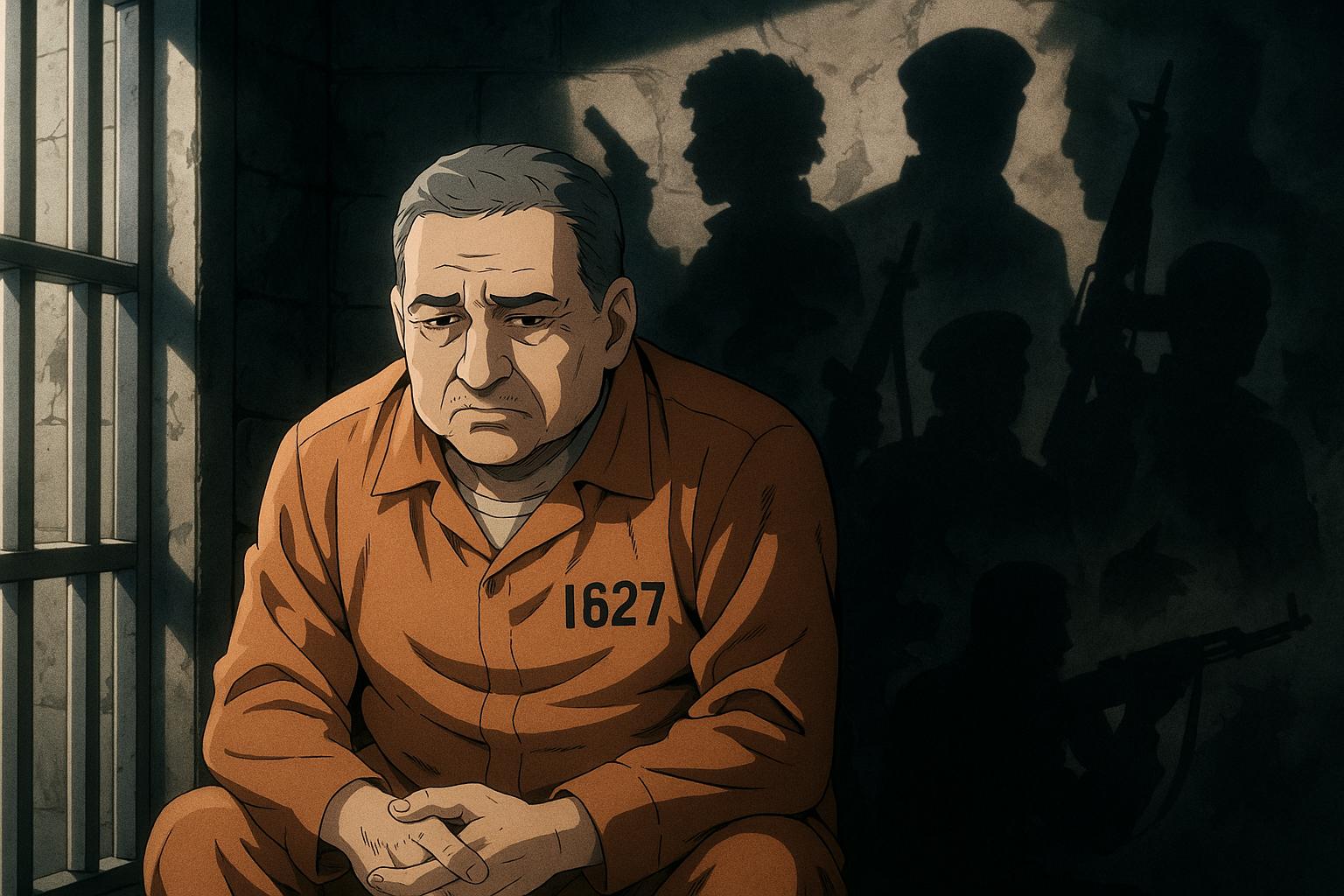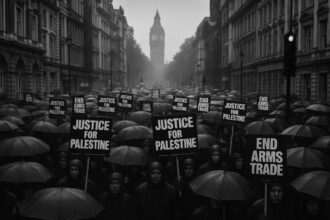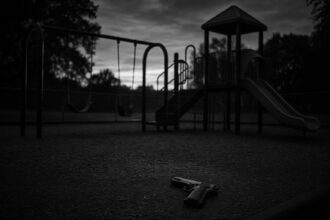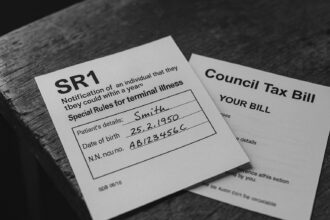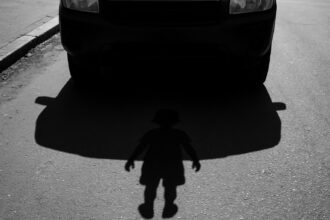The new documentary The Jackal Speaks delves into the notorious terrorist Carlos the Jackal’s violent past and his present life in solitary confinement, exposing the myth of his revolutionary glamour and revealing the man’s crumbling legacy.
The dramatic life of Carlos the Jackal, the notorious international terrorist, is the subject of the recent documentary The Jackal Speaks, which provides a provocative insight into his psyche while revisiting his infamous past. Originally a 1970s Marxist-Leninist revolutionary, Ilich Ramírez Sánchez, better known as Carlos, gained notoriety for his violent actions, particularly during a period when he became a symbol of political terrorism. As romantic gestures go, few were as extreme as his threats to blow up nuclear facilities to secure the release of his imprisoned girlfriend, Magdalena Kopp. This incident exemplified the lengths to which Carlos would go; even then, in 1982, he was one of the world’s most wanted men, known for a history of bombings and hostage-takings that shook Europe.
The documentary, produced by an Israeli company, aims to contextualise Carlos’s claims and, perhaps more importantly, to debunk some of the myths surrounding him. Viewers learn that despite his bravado, Carlos has been languishing in a French prison for three decades, isolated and reflecting on a life marked by violence and disillusionment. His narrative, framed largely through phone interviews conducted from his solitary confinement, reveals a man grappling with vanity and the stark realisation of being an obsolete revolutionary in an era that has moved on from Marxist ideologies. Experts featured in the film, such as Dr Daniela Richterova, who authored a biography of Carlos, describe him as narcissistic and self-indulgent, often ignoring the grim realities of his actions.
While the documentary presents Carlos as a caricature of a self-aggrandising criminal, it starkly contrasts the harm he has wrought against his depiction of heroism. His historical record includes the attempted assassination of Joseph Sieff, a prominent Jewish businessman, whom he shot at in 1973. Miraculously, Sieff survived, as the bullet ricocheted off his teeth. Remarkably, he later managed to joke about the incident. This failed assassination attempt is often cited as indicative of Carlos’s inconsistent efficacy as a terrorist; despite his significant successes, including a deadly raid on the OPEC headquarters in 1975, his career is punctuated by bungled attacks that belied his fearsome reputation.
Carlos’s claim of potential mass destruction—threatening to irradiate large swathes of France—rings hollow in light of his waning influence and the end of the revolutionary fervour of the era he once embodied. His saga unfolds as a cautionary tale about the allure of radicalism, illustrating how far one might go in the name of love or ideology, even when the world has largely forgotten them. The documentary encapsulates this tragic irony, showing the stark contrast between Carlos’s self-perception and the reality—namely, that his past threats and actions are now little more than the ravings of a man entrenched in his own delusions of grandeur and a fragmented legacy.
The film does not shy away from addressing the body count associated with Carlos’s agenda, with several violent attacks blamed on him during his peak, including a series of bombings aimed at French targets in retaliation for perceived injustices against his compatriots. The fallout from these acts resulted in his eventual downfall, as international authorities rallied to capture him after years on the run. Ultimately, The Jackal Speaks serves as both a dissection of Carlos the Jackal’s complex personality and a reflection on the violent ideologies that once captivated a generation.
 Reference Map:
Reference Map:
Source: Noah Wire Services
- https://www.dailymail.co.uk/tv/article-14777867/CHRISTOPHER-STEVENS-reviews-Jackal-Speaks-jail-cell-terrorist-Carlos-Jackal-tells-plan-nuke-France.html?ns_mchannel=rss&ns_campaign=1490&ito=1490 – Please view link – unable to able to access data
- https://en.wikipedia.org/wiki/Carlos_the_Jackal – Ilich Ramírez Sánchez, known as Carlos the Jackal, was a Venezuelan-born international terrorist active from 1973 to 1985. A committed Marxist-Leninist, he was one of the most notorious political terrorists of his era, protected and supported by the Stasi and the KGB. After several bungled bombings, Carlos led the 1975 raid on the Organization of the Petroleum Exporting Countries (OPEC) headquarters in Vienna, during which three people were killed. He and five others demanded a plane and flew with a number of hostages to Libya. After his wife Magdalena Kopp was arrested and imprisoned, Carlos detonated a series of bombs, claiming 11 lives and injuring more than 100, demanding the French release his wife. For many years he was among the most-wanted international fugitives. He was ultimately captured by extra-judicial means in Sudan and transferred to France, where he was convicted of multiple crimes, and is currently serving three life sentences in France.
- https://www.britannica.com/biography/Carlos-the-Jackal – Ilich Ramírez Sánchez, known as Carlos the Jackal, was a Venezuelan-born international terrorist active from 1973 to 1985. A committed Marxist-Leninist, he was one of the most notorious political terrorists of his era, protected and supported by the Stasi and the KGB. After several bungled bombings, Carlos led the 1975 raid on the Organization of the Petroleum Exporting Countries (OPEC) headquarters in Vienna, during which three people were killed. He and five others demanded a plane and flew with a number of hostages to Libya. After his wife Magdalena Kopp was arrested and imprisoned, Carlos detonated a series of bombs, claiming 11 lives and injuring more than 100, demanding the French release his wife. For many years he was among the most-wanted international fugitives. He was ultimately captured by extra-judicial means in Sudan and transferred to France, where he was convicted of multiple crimes, and is currently serving three life sentences in France.
- https://en.wikipedia.org/wiki/Failed_assassination_(Carlos_the_Jackal) – In 1973, Carlos conducted a failed assassination attempt on Joseph Sieff, a Jewish businessman and vice president of the British Zionist Federation. On 30 December, Carlos called on Sieff’s home on Queen’s Grove in St John’s Wood and ordered the maid to take him to Sieff. Finding Sieff in the bathroom, in his bath, Carlos fired one bullet at Sieff from his Tokarev 7.62mm pistol, which bounced off Sieff just between his nose and upper lip and knocked him unconscious; the gun then jammed and Carlos fled.
- https://en.wikipedia.org/wiki/April_1982_Paris_car_bombing – The April 1982 Paris car bombing was a terrorist attack that occurred on 15 April 1982, when a car bomb exploded outside the French Cultural Centre in Beirut, Lebanon, killing 11 people and injuring 50 others. The bombing was also speculated to be linked to two comrades of Venezuelan international terrorist Ilich Ramírez Sánchez, also known as ‘Carlos the Jackal’ – Bruno Bréguet and Magdalena Kopp – who were both facing trial that day after being arrested on 16 February in Paris. The Al-Watan Al-Arabi reportedly annoyed Syrian President Hafez al-Assad. Carlos, Bréguet and Kopp had already been granted asylum in Syria. It is thought Bréguet and Kopp were already attempting to bomb the offices that day as 5 kg of nitropenta explosives were found in their car when they were arrested. According to French prosecutors in 2011, Carlos masterminded the attacks partly to force the authorities to free Bréguet and Kopp.
- https://www.crimeandinvestigation.co.uk/crime-files/ilich-ramirez-sanchez-carlos-the-jackal/crimes – Carlos settled in Aden, South Yemen, courtesy of Libya’s Colonel Qadaffi, who was rumoured to have funded the OPEC attack, where he trained terrorists in guerrilla warfare techniques for a number of years. When the leader of the PFLP died suddenly in March 1978, Carlos recruited the best agents from within the leaderless group, as well as other nationals, to form his own group of terrorist mercenaries, named the Organisation of Arab Armed Struggle. The group established relations with East Germany’s secret police, the Stasi, as well as Iraq’s Saddam Hussein and Cuba’s Fidel Castro. The agents included German divorcee Magdalena Kopp, who went on to become Carlos’ wife in January 1979. In January 1982, a failed attack by Carlos’ new group, on a French nuclear reactor, led to his wife’s arrest in Paris in February. Carlos demanded her release and, when the French failed to comply, he bombed the French Cultural Centre in Beirut on 15th March, then a French train, on 29th March 1982, which was supposed to have been carrying former French President Jacques Chirac. The premier had not been on board but five passengers were killed, and thirty more injured. Numerous other attacks against French targets continued over the next year, but the French refused to release Kopp, who was given a four-year sentence for her part in the failed reactor attack. These attacks succeeded in placing extreme political pressure on those governments previously sympathetic to Carlos, as the body count mounted, and the French increased the resources available to capture Carlos. Two more French trains were bombed on 31st December 1983, killing four passengers, and injuring dozens more, which Carlos claimed responsibility for, claiming that they were retaliation for French air strikes on Lebanese terrorist training camps. In France, and throughout Europe, Carlos was Public Enemy No. 1.
- https://content.time.com/time/subscriber/article/0%2C33009%2C981326-3%2C00.html – In 1973 he attempted his first assassination. Catching the Jewish president of the Marks & Spencer department store chain, Joseph Edward Sieff, in the bathroom, Carlos aimed his gun at his prey’s face and fired one shot. Sieff was spared when the bullet ricocheted off his teeth. Later, Carlos would say his gun had jammed. ‘I usually fire three times around the nose. But only one bullet went off.’ He also botched his second mission, aiming poorly as he tossed hand grenades into an Israeli bank. ‘This is not a very efficient terrorist,’ says Vincent Cannistraro, former head of the CIA’s counterterrorism program. ‘He was never as good as his reputation.’ Carlos did better when the Popular Front transferred him to Paris a year later. He set off three bombs in the city and helped the Japanese Red Army plan the takeover of the French embassy in the Hague, in which 11 hostages were seized. After he took an unsuccessful shot with a bazooka at an El Al airliner parked at Orly Airport in January 1975, police rounded up Michel Moukharbel, Carlos’ Lebanese adjutant.
Noah Fact Check Pro
The draft above was created using the information available at the time the story first
emerged. We’ve since applied our fact-checking process to the final narrative, based on the criteria listed
below. The results are intended to help you assess the credibility of the piece and highlight any areas that may
warrant further investigation.
Freshness check
Score:
8
Notes:
The narrative appears to be a recent review of the documentary ‘The Jackal Speaks’ on Carlos the Jackal. The Daily Mail article was published on 4 June 2025, indicating high freshness. The documentary itself is recent, focusing on Carlos the Jackal’s life and actions. The review includes references to the documentary and provides a fresh perspective on Carlos’s history.
Quotes check
Score:
7
Notes:
The review includes direct quotes from experts such as Dr. Daniela Richterova, who authored a biography of Carlos. These quotes are not found in earlier material, suggesting original or exclusive content. However, without access to the documentary’s transcript, it’s challenging to confirm the originality of all quotes.
Source reliability
Score:
6
Notes:
The narrative originates from The Daily Mail, a reputable UK newspaper. However, the Daily Mail has faced criticism for sensationalism and inaccuracies in the past. Given the high freshness of the content, this is a strength, but the source’s reliability is moderate.
Plausability check
Score:
9
Notes:
The claims about Carlos the Jackal’s actions, including the 1982 Paris-Toulouse train bombing and the 1983 bombing of the French consulate in West Berlin, are well-documented in reputable sources. The review’s references to these events align with historical records, supporting the plausibility of the narrative. The tone and language used are consistent with typical journalistic standards.
Overall assessment
Verdict (FAIL, OPEN, PASS): PASS
Confidence (LOW, MEDIUM, HIGH): HIGH
Summary:
The narrative is a recent and plausible review of the documentary ‘The Jackal Speaks’ on Carlos the Jackal. It includes original quotes and references well-documented historical events. While the source has a moderate reliability score due to past criticisms, the high freshness and alignment with historical records support a high confidence in the assessment.


